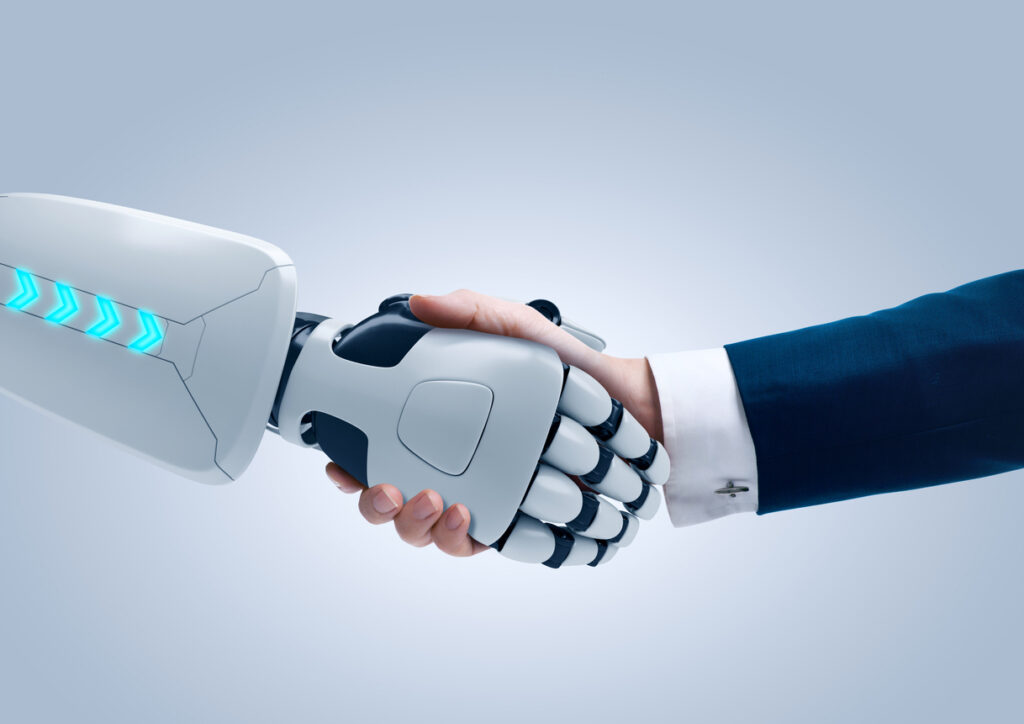Businesses needn’t be fearful of AI, in fact they should embrace technology to help with functional tasks and encourage softer human skills that computers cannot replicate.
The Bank of England’s recent warning about thousands of jobs being at risk from AI is just the latest in a series of scare stories about technology.
It seems we can’t open the business pages of a newspaper without encountering another jeremiad about robots coming to steal our jobs – but these tend to tell only one half of the story.
In July research from PwC found that AI will create as many jobs as it displaces. While McKinsey’s latest report states that AI has the potential to deliver additional global economic activity of around $13 trillion by 2030. This ought to give the public pause for thought.
In July research from PwC found that AI will create as many jobs as it displaces.
Perhaps there is much less reason to fear the net impact of automation on jobs – and perhaps we should be thinking and talking more positively about the ways in which AI will transform not just the enterprise but the economy as well.
Million-dollar skills
When it comes to hot topics in tech, there’s only one that might beat out automation and AI: the skills gap. Just as we need to treat AI and automation as evolutionary rather than revolutionary, the same goes for skills.
Business leaders should be focused on how best to bring automation into the enterprise without robbing us of our livelihoods.
In fact, the two should go hand in hand. Business leaders should be focused on how best to bring automation into the enterprise without robbing us of our livelihoods.
Instead of worrying about the political fallout of redundancies, businesses should be thinking positively about the opportunity to develop a more skilled workforce – one that can wring the most value out of new technologies. Luckily, there’s no short of examples of how they can do exactly that.
Automation in action
Some organisations are already delegating repetitive tasks to machines through RPA and predictive analytics. Finance provides a number of great examples.
Incoming invoices can be automatically processed and actioned by machine, creating efficiencies in a department fraught with mountains of paperwork and mounting deadlines.
Technology is not only reducing admin and improving efficiency, but providing customers with a better, more personalised and speedier service.
In supply chain management, we can see predictive analytics forecasting customer demand without human intervention and communicating this to pickers and packers on the warehouse floor at the touch of a button.
Technology is not only reducing admin and improving efficiency, but providing customers with a better, more personalised and speedier service. With a robot on your desktop who can perform the same tasks in an hour as would take a human all day, the argument against automation begins to wear thin.
Man and machine
There, it seems, is the rub: if robots can perform these tasks faster and more accurately than people, where is the benefit in employing humans. The answer is that by taking up the drudge work, it frees employees for much more creative, valuable work that uses human capital to its best advantage.
With AI and automation in full swing, we can see human job roles start to become less ‘functionary’ and more ‘visionary’. While technology will perform tasks of ever-increasing complexity, humans will be needed to guide them, match capabilities to business strategy, and provide the all-important vision for the future.
Human job roles start to become less ‘functionary’ and more ‘visionary’.
Bots may be brilliant at predicting demand, but only people can turn data into real insight – the sort that wins new customers and generates long-term business value.
Finance professionals can spend more time on financial planning and product development or customer service, again feeding value back into the business that only a human can provide.
So what’s the next step?
Those who question if we’ve got the skills conversation wrong might be onto something. We are often fixated on core technical skills, from coding to advanced topics like data science and machine learning. There’s no doubt that these are important to the future of industry and businesses.
But have we lost sight of the softer skills such as problem-solving, critical thinking and applying insight to business strategy? AI can find facts and can even recommend prescriptive or proscriptive actions – but what it can’t do is formulate a watertight strategy based on the insights it discovers.
Marry the number-crunching and time saving capabilities of AI with humanity’s powers of reason and lateral thinking.
To truly make AI work for your business, ensuring your employees’ human skills are honed to perfection is as crucial as technological investments.
We want business leaders to foster an atmosphere of experimentation and innovation and constantly question how they can deploy smart technologies such as AI to solve today’s challenges. But to combat the threat posed by automation we need to do more.
It’s not enough just to understand the different technologies on the table; they should also understand what new value these technologies can bring to their business, their customers and their employees.
This requires a shift in culture as much as it does the acquisition of new skills and technologies. Most of all, it requires a radical rethink: how can we work best with AI to ensure AI works best for us?
The answer, surely, must be to look beyond the capabilities of new technology on its own, and instead work out how to marry the number-crunching and time saving capabilities of AI with humanity’s powers of reason and lateral thinking. A rush to replace human capital with robots will only make us all poorer.






